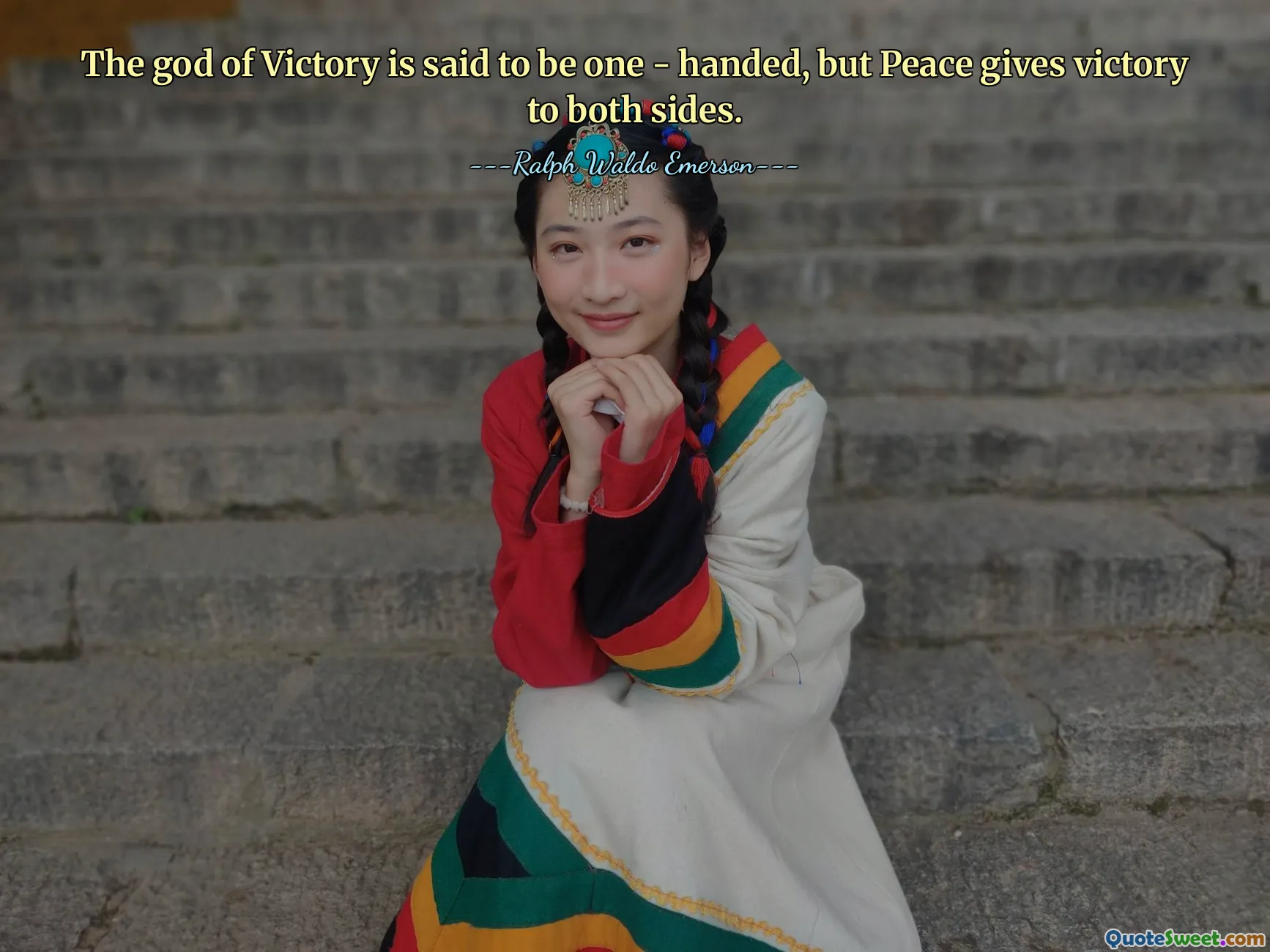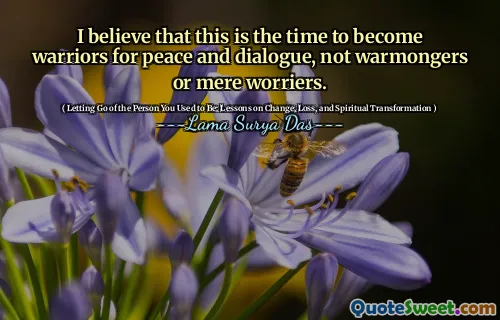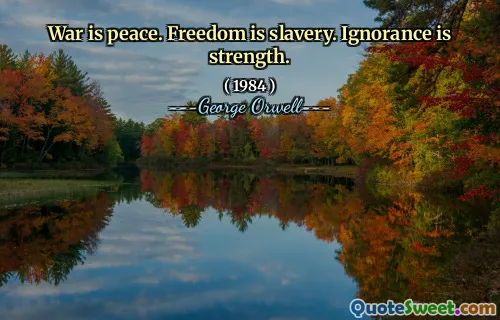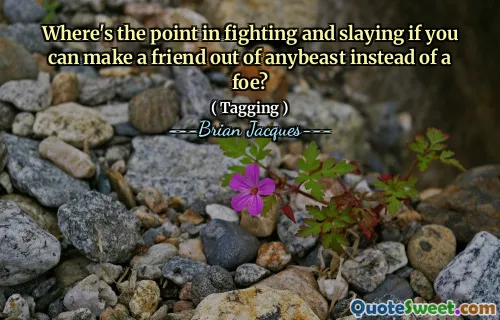
The god of Victory is said to be one - handed, but Peace gives victory to both sides.
This quote encapsulates a profound truth about the nature of true success and resolution. The imagery of victory being associated with a one-handed god suggests that victory, as traditionally viewed, can be incomplete or unilateral, often achieved through conflict, dominance, or force. However, the mention that Peace grants victory to both sides shifts the perspective towards a more harmonious and constructive understanding of triumph. Peace is portrayed as a force that fosters mutual benefit, understanding, and cooperation, ultimately leading to a form of victory that is inclusive and sustainable. This highlights the idea that true progress does not necessarily stem from victory at the expense of others but rather from reconciliation and mutual respect. In a broader context, it advocates for conflict resolution through peaceful means, emphasizing that the ultimate winning scenario is one where no side loses. It resonates with philosophies that prioritize harmony over conquest and underscores the value of patience, diplomacy, and empathy in achieving long-term success. The quote subtly challenges us to reconsider our notions of victory—urging us to seek out paths that uplift all parties involved rather than just asserting dominance. It reminds us that while competition and struggle may produce quick results, lasting achievements are rooted in peace and understanding. This message is especially relevant today, where conflicts—whether personal, political, or global—often seem insurmountable. Embracing peace as a method of victory offers a pathway toward genuine progress, fostering a more equitable and sustainable future for everyone involved.








